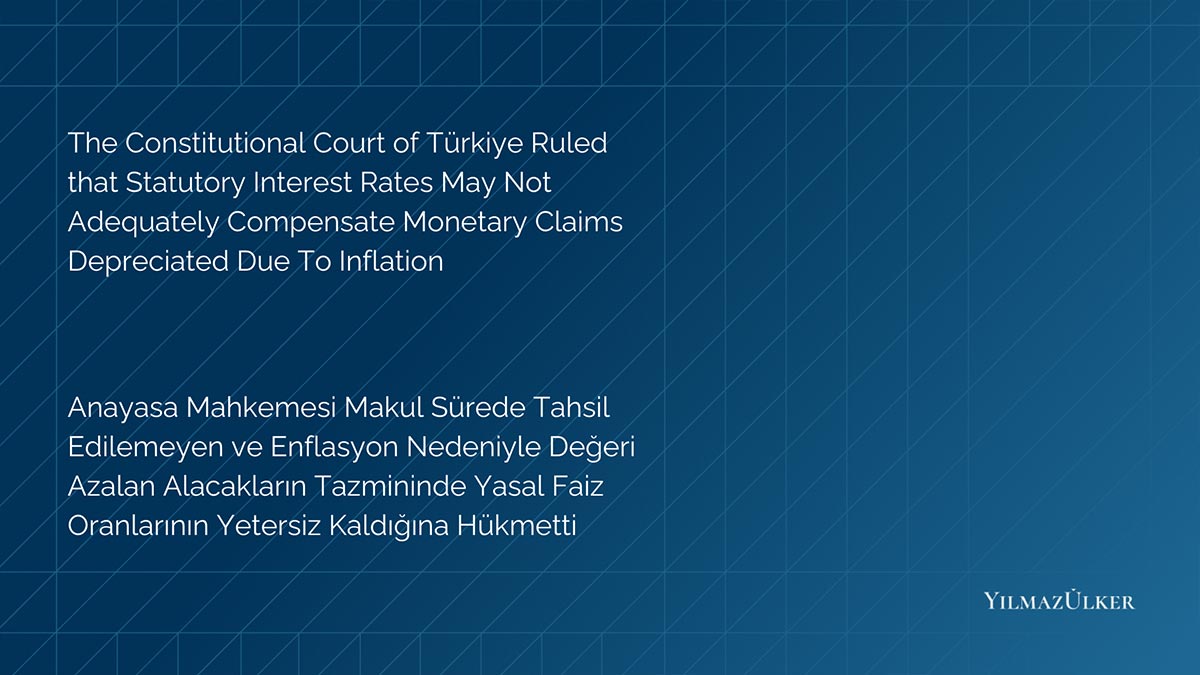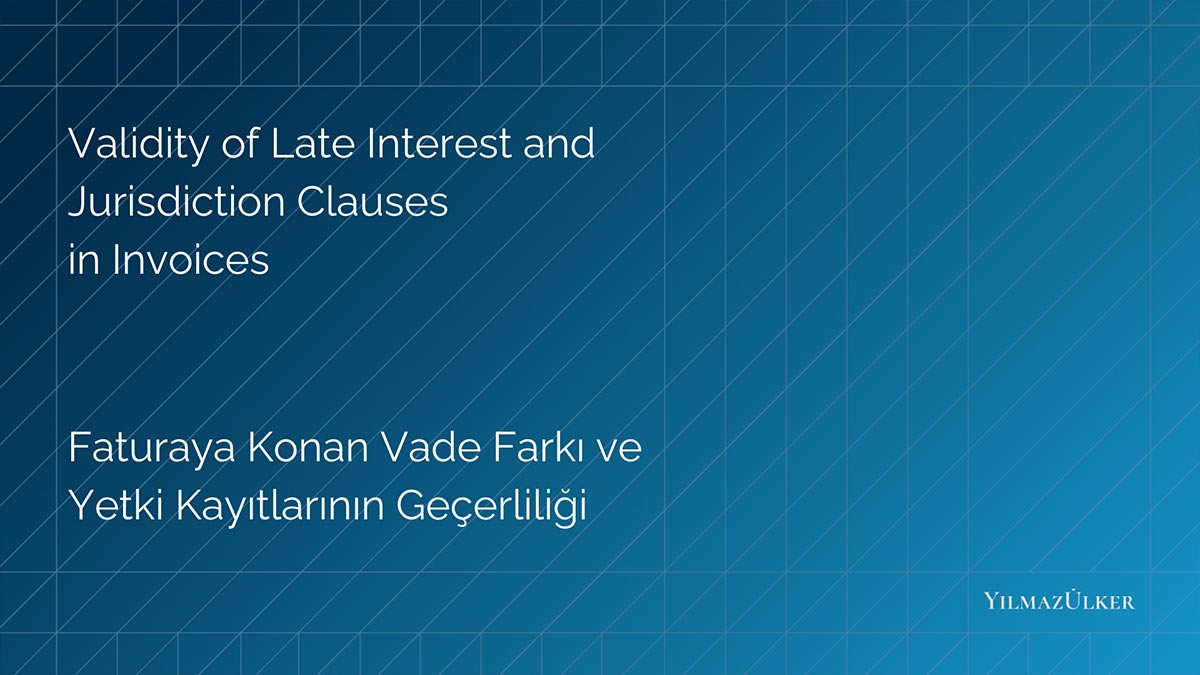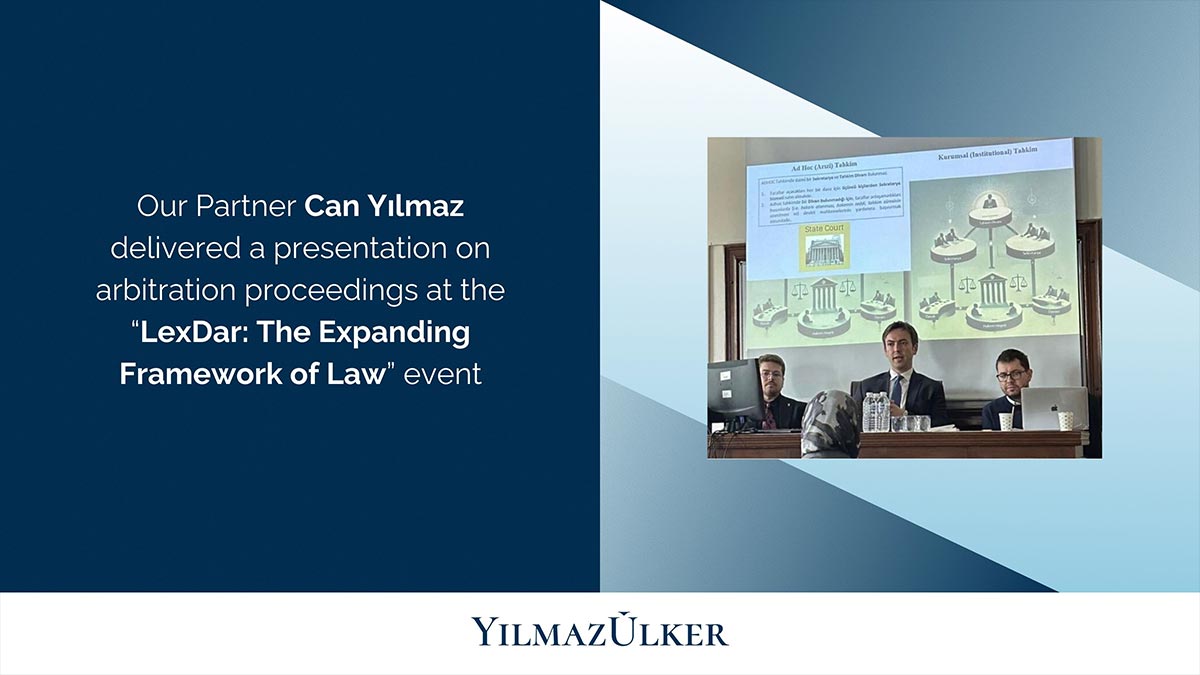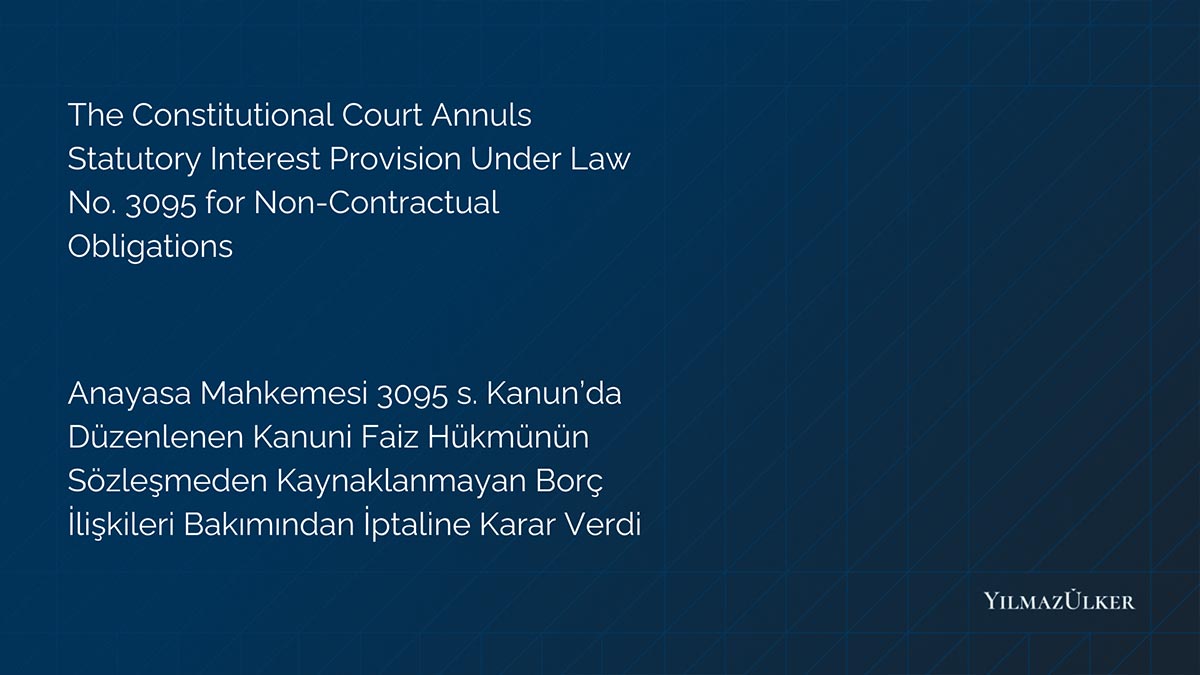News & Publications

The Constitutional Court of Türkiye Ruled that Statutory Interest Rates May Not Adequately Compensate Monetary Claims Depreciated Due To Inflation
Introduction
In its decision dated July 8, 2025 and numbered 2024/41763 (the “Decision”), the Constitutional Court of Türkiye (the “Court”) ruled that, in judicial proceedings initiated for the collection of receivables, there is no satisfactory statutory provision to compensate for the depreciation in the value of receivables caused by high inflation. Court ruled that this situation constitutes a violation of the right to property safeguarded under Article 35 of the Constitution of the Republic of Türkiye (the “Constitution”) and the right to an effective remedy set forth in Article 40 of Constitution. You may access the full text of the Decision here.
Case Background
The claimant recovered the receivable that had been subject to enforcement proceedings initiated in 2010, together with statutory interest, only in 2020. The claimant subsequently filed a new lawsuit under Article 122 of the Turkish Code of Obligations No. 6098 (“TCO”), seeking compensation for ‘excessive damage,’ on the grounds that the statutory interest applied to the receivable did not offset the loss in value caused by Türkiye’s inflationary environment over the preceding decade.
The conditions required for compensation of excessive damage regulated under Article 122 of TCO are as follows:
- The debtor’s default due to failure to pay a monetary debt at maturity
- The creditor’s incurrence of loss as a result of the default that cannot be remedied by default interest
- The debtor’s fault in falling into default and
- The existence of a causal link between the debtor’s default and the excessive damage suffered by the creditor
As a result of the proceedings, the courts [1] stated that abstract factors such as inflation, currency fluctuations, and depreciation of money were not, on their own, sufficient to establish loss, and that the claimant was required to prove the damage through concrete facts specific to their own situation; since the claimant failed to discharge this burden of proof.
Thereupon, the claimant applied to Court, arguing that the failure to resolve the dispute within a reasonable time had caused damage exceeding the default interest and thereby violated the principles of equality, the right to a fair trial, and the right to property.
The Constitutional Court Ruled that No Effective Remedy Exists to Compensate the Inflationary Loss of Receivables
Court compared the statutory interest, default interest, and commercial default interest rates regulated under the Law on Statutory Interest and Default Interest No. 3095 (“Law No. 3095”) with the inflation data published by the Turkish Statistical Institute (“TÜİK”). It emphasized that these rates are inadequate to compensate for the loss in value of receivables paid late due to the effect of inflation, and underlined that unless a correlation is established between the statutory interest rates set forth in Law No. 3095 and the inflation rates, Law No. 3095 cannot serve the function of offsetting the loss in the value of money.
Court underlined that low statutory interest rates encourage debtors to delay payments, which increases workloads of courts, weakens trust in the judiciary, and ultimately harms public order.
In conclusion, Court ruled that the statutory interest rates remaining significantly below inflation, combined with the Court of Cassation’s approach in imposing a heavy burden on creditors in excessive damage claims to prove specific loss beyond inflation, left creditors unprotected. Court found that this constituted a violation of the rights to an effective remedy and to property guaranteed under Constitution. Determining that this also amounted to a structural problem, Court applied the ‘pilot judgment’ procedure [2] and decided to notify the Grand National Assembly of Türkiye of its ruling to prompt effective legislative action.
Bibliography
- [1] The Court of First Instance, the Regional Court of Appeal, and the Court of Cassation, respectively.
- [2] The pilot judgment procedure is regulated under Article 75 of the Constitutional Court’s Rules of Procedure. This procedure is applied where the Constitutional Court determines, in a particular case, that the violation of a constitutional right stems from a structural problem which has given rise to other applications and is expected to lead to further applications in the future.
The above information reflects the general assessments of YılmazÜlker Attorney Partnership ("YılmazÜlker") regarding the subject matter and do not constitute legal opinion or legal consultancy services. Before taking any action based on the matters stated herein, it is recommended to seek professional legal advice by considering the specific circumstances of the case. YılmazÜlker shall not be held liable for any consequences arising from or in connection with the content of this document.






#YilmazUlker #StatutoryInterestRates #ConstitutionalCourt #Inflation #Publication